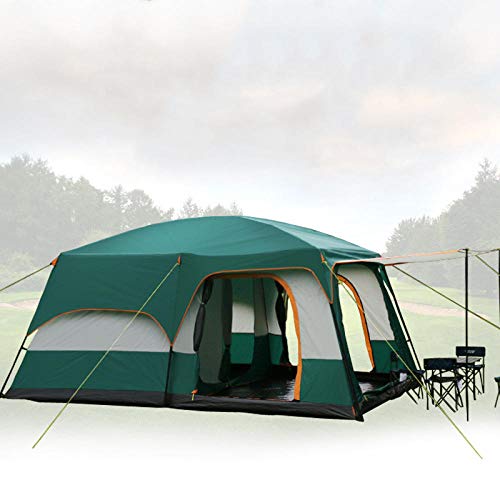
When it comes to camping, choosing the right tent is crucial. Not only do you need to select a tent that is the right size for your needs, but you also need to choose the right material. There are many materials to choose from, and each has its unique features and benefits. In this article, we will discuss how to choose the right material for your tent.
Factors to Consider When Choosing a Tent Material
When choosing a tent material, there are several factors that you should consider:
Durability
Durability is an essential factor to consider when selecting a tent material. You want a tent that can withstand the wear and tear of outdoor use, including harsh weather conditions, frequent use, and rough terrain. You should look for a tent material that is strong and durable, such as ripstop nylon or polyester.
Weight
The weight of the tent is also an essential factor to consider. If you plan to hike or backpack, you will want a tent that is lightweight and easy to carry. Lightweight materials such as nylon and polyester are ideal for backpacking and hiking.
Weather Resistance
The weather resistance of a tent material is crucial. You need a material that can protect you from the elements, such as rain, wind, and snow. Look for materials that are waterproof and have a high level of breathability to prevent condensation from building up inside the tent.
Breathability
Breathability is also an important consideration. A breathable material will allow air to circulate inside the tent and prevent condensation from building up. Materials such as cotton and canvas are highly breathable and can provide excellent ventilation.
Cost
Finally, cost is also an important factor to consider. Tent materials vary in price, so it is important to choose a material that fits within your budget. Consider the features and benefits of each material and choose the one that provides the best value for your money.
Types of Tent Materials
There are several types of tent materials to choose from, each with its unique features and benefits. Here are some of the most popular tent materials:
Nylon
Nylon is a popular tent material because it is lightweight, durable, and affordable. It is also water-resistant and provides excellent protection from the elements. Nylon tents are easy to set up and take down, making them ideal for backpacking and hiking trips. Nylon tents are also highly breathable, which can help prevent condensation from building up inside the tent.
Polyester
Polyester is another popular tent material that is lightweight and durable. It is also water-resistant and provides excellent protection from the elements. Polyester tents are easy to set up and take down, making them ideal for camping trips. Polyester tents are highly breathable, which can help prevent condensation from building up inside the tent.
Canvas
Canvas is a heavier and more durable tent material that is ideal for extended camping trips. It is highly breathable, which can help prevent condensation from building up inside the tent. Canvas tents are also highly waterproof and provide excellent protection from the elements. However, canvas tents are heavier and more cumbersome to set up and take down than nylon or polyester tents.
Ripstop Nylon
Ripstop nylon is a lightweight and durable tent material that is ideal for backpacking and hiking trips. It is highly tear-resistant and provides excellent protection from the elements. Ripstop nylon tents are also highly breathable, which can help prevent condensation from building up inside the tent.
Gore-Tex
Gore-Tex is a highly waterproof and breathable material that is ideal for camping in wet conditions. Gore-Tex tents are highly durable and provide excellent protection from the elements. However, Gore-Tex tents are more expensive than other tent materials, which may not fit within everyone’s budget.
Conclusion
Choosing the right tent material is crucial for a comfortable and enjoyable camping experience. When selecting a tent material, it is important to consider factors such as durability, weight, weather resistance, breathability, and cost. By understanding the features and benefits of each tent material, you can choose the one that best fits your needs and provides the most value for your money.

